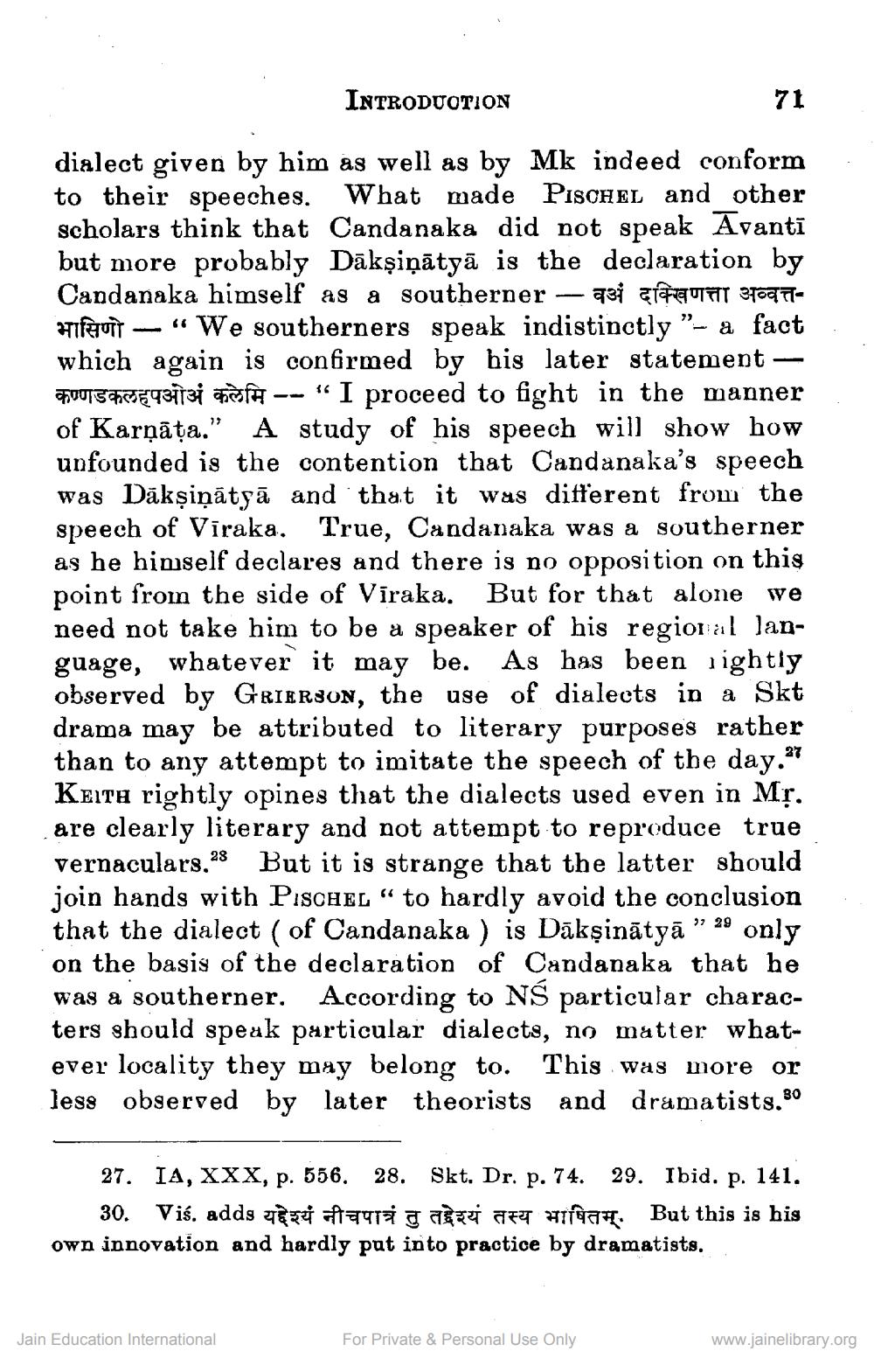________________
INTRODUCTION
""
dialect given by him as well as by Mk indeed conform to their speeches. What made PISCHEL and other scholars think that Candanaka did not speak Avanti but more probably Dākṣiṇātya is the declaration by Candanaka himself as a southerner वअं दक्खिणत्ता अव्वत्तभासिणो — “We southerners speak indistinctly a fact which again is confirmed by his later statement. कण्णडकलहपओअं कलेमि "I proceed to fight in the manner of Karnata." A study of his speech will show how unfounded is the contention that Candanaka's speech was Dākṣinatya and that it was different from the speech of Viraka. True, Candanaka was a southerner as he himself declares and there is no opposition on this point from the side of Viraka. But for that alone need not take him to be a speaker of his regional language, whatever it may be. As has been lightly observed by GRIERSON, the use of dialects in a Skt drama may be attributed to literary purposes rather than to any attempt to imitate the speech of the day." KEITH rightly opines that the dialects used even in Mr. are clearly literary and not attempt to reproduce true vernaculars. But it is strange that the latter should join hands with PISCHEL " to hardly avoid the conclusion that the dialect (of Candanaka) is Dākṣinātyā ❞ 29 only on the basis of the declaration of Candanaka that he
we
27
was a southerner. According to NŚ particular characters should speak particular dialects, no matter whatever locality they may belong to. This was more or less observed by later theorists and dramatists.30
28
--
Jain Education International
71
27. IA, XXX, p. 556. 28. Skt. Dr. p. 74. 29. Ibid. p. 141. 30. Vis. adds यद्देश्यं नीचपात्रं तु तद्देश्यं तस्य भाषितम् But this is his own innovation and hardly put into practice by dramatists.
For Private & Personal Use Only
―――
www.jainelibrary.org




